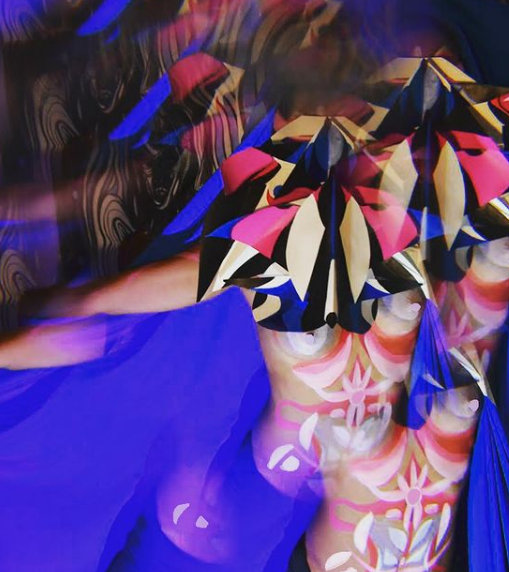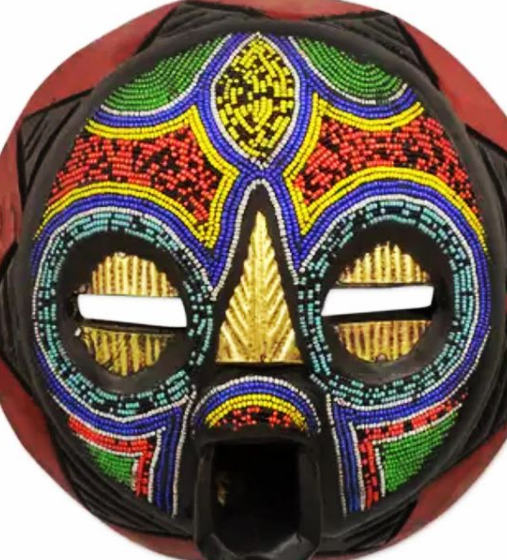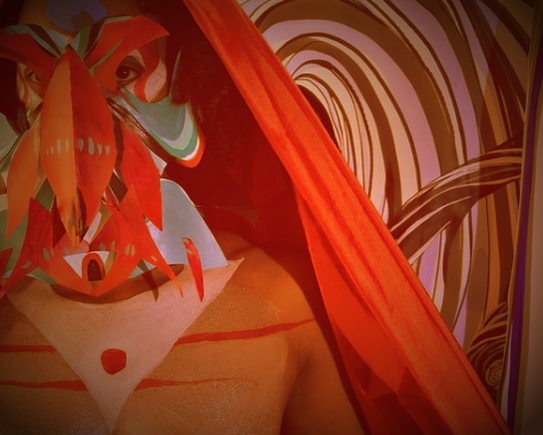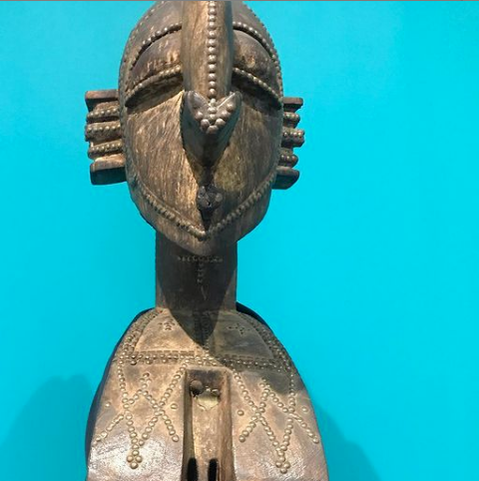I’ve never gotten a dna test, but many of my friends have. Their results vary in percentages of African and European, with a smidge of Native; their tribal breakdowns are scattered all across Nigeria, Senegal, Guinea, or elsewhere. A little bit of Fulani, a smattering of Luo, and more people, places, and descriptions in between.
The slave trade has erased what Black people here know about Africa; also, colonialism has eroded a lot of what we know about the traditions and practices around masks in Africa. What ceremonies were they used for, pre-contact? Why, in 9/10 of cases, don’t we know the artist’s name? What inspiration can I get from a subject that I know little about but need to know about-my origins?
One way for me to cope with such a huge amount of erasure regarding my lineage is making and performing in my masks. Another is to find and gain inspiration from the artists that I can find the names for, and learn about culture in that way.
The mask in the second panel was made by Abdul Aziz Mohamadu, selling his original artwork on Novica.com. My masks are made of paper; Mohamadu makes his from wood. The mask is named “Inido,” which is “beautiful” in Igbo. According to Mohamadu’s page, this type of mask can be a courting gift or worn by man to show how he feels about a woman. Even more fun, this Igbo/Nigerian mask was made in Ghana.
While celebrating Dr. King, who has been mythologized away from his more controversial political beliefs, I want to do my own part of corrective attribution. Too often, I think the object and their meanings are separated from the physical bodies of those that wore them in the name of classification, defeating the pursuit of wholistic knowledge. The ancestors that made our oldest masks may not be known, and the dances or songs that went with some may be lost, but that’s not true for all of them. I would love to see an African art show that explores attribution and memory more throughly.




 RSS Feed
RSS Feed